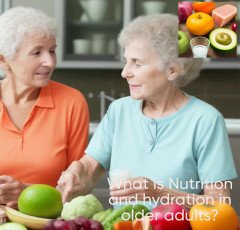
What is Nutrition and hydration in older adults ?

For older folks to be healthy and happy, proper nutrition and water are crucial.
Age-related bodily changes might affect a person's dietary requirements and level of hydration. Maintaining a healthy body weight, boosting the immune system, and avoiding chronic diseases all depend on getting enough nourishment and water.
A balanced diet that includes fruits, vegetables, whole grains, lean meats, and healthy fats is important for older persons' nutrition because it gives the body the resources it needs. Due to a decline in physical activity, older persons may need fewer calories than younger adults, but their nutrient requirements may stay the same or even go up. They must therefore eat nutrient-dense foods that offer the essential vitamins and minerals for good health.
For older adults, maintaining proper hydration is also essential since they are more likely to get dehydrated due to diminished thirst perception, medication use, and specific medical disorders. The maintenance of good skin, control of body temperature, and support of organ health can all be achieved with adequate hydration. Depending on their degree of physical activity and environmental variables, it is advised that older persons drink at least 8 glasses of water every day, if not more.
Preventing chronic diseases in older individuals and maintaining good health depend on proper nutrition and hydration.
To create a customized nutrition and hydration plan that addresses the special requirements of older persons, it is essential to speak with a healthcare professional or registered dietitian.
Older persons may need particular nutrients to address age-related changes in their bodies in addition to a healthy, balanced diet.
For instance, because bone density tends to decline with age, older persons may need extra calcium and vitamin D to maintain bone health. Supplementing with vitamin B12 and folate may also be required as older persons may have trouble absorbing these nutrients from meals.
The nutritional and hydration status of older persons may also be affected by difficulties with chewing or swallowing, changes in taste and smell, and decreased appetite. To guarantee that older persons obtain proper nutrition and hydration, it is crucial to address these issues and offer suitable solutions.
Among the methods to encourage healthy hydration and nutrition in older individuals are:
In diet and hydration are crucial for preserving older persons' health and wellbeing.
A balanced diet and specific nutrient supplements should be used to meet the specific nutritional demands of older persons. It is possible to help ensure that older persons acquire the nutrients they need to support their health and well-being by addressing issues that may have an influence on nutritional status and offering the proper interventions.
Maintaining healthy diet and hydration in older persons can also be greatly aided by regular physical activity.
Exercise can encourage healthy bowel motions and enhance appetite, digestion, and nutrient absorption. In order to promote their general health and wellbeing, older persons should strive to exercise for at least 30 minutes each day, most days of the week.
What's more, older folks who are malnourished or dehydrated may experience major side effects include a higher chance of falling, becoming sick, and needing hospitalization. Therefore, it's imperative to be mindful of the symptoms of malnutrition and dehydration, such as unexpected weight loss, diminished energy, and changes in the frequency or color of urine. If you believe a senior citizen is undernourished or dehydrated,
Healthy eating and adequate water are essential for preserving older individuals' health and wellbeing.
We can promote the health and well-being of older individuals and aid in their pursuit of a good quality of life by encouraging a balanced diet, tailored nutrient supplementation, frequent physical exercise, and appropriate treatments to address issues that may impair nutritional status.
It's also critical to remember that social isolation and loneliness can affect older people's levels of hydration and nutrition.
Malnutrition and dehydration may be more common in older persons who live alone or have little social engagement. In order to enhance older individuals' general health and well-being, it is crucial to encourage social interaction and participation.
Due to specific medical issues like diabetes, heart disease, or kidney disease, older persons may need to alter their diets.
In these situations, speaking with a registered dietitian or other healthcare professional can assist in creating a personalized nutrition plan that addresses their particular requirements and encourages maximum health.
It is vital to inform elderly people and those who care for them about the value of healthy eating and drinking habits, as well as to offer them useful advice. This can involve supplying resources for nutrition education, cooking classes or help with meal preparation, and supporting neighborhood-based initiatives that support healthy aging.
Healthy aging and wellbeing in older persons depend heavily on nutrition and hydration.
We can promote older folks' health and well-being and aid in their pursuit of a good quality of life by encouraging a balanced diet, tailored nutrient supplementation, regular physical exercise, appropriate interventions, social engagement, and education.
Technology can help older persons maintain healthy eating and water in addition to the previously listed measures.
Mobile applications and wearable technology, for instance, can be used to track food intake, check hydration levels, and send alerts when it's time to take medication or drink fluids. Additionally, licensed dietitians and other healthcare professionals who may offer guidance and support on nutrition can be accessed through telehealth programs.
Elderly persons might benefit greatly from the support of their family members and caregivers in maintaining healthy eating and hydration.
In addition to managing medications, grocery shopping, and meal preparation, caregivers can also offer social assistance. In order to sustain healthy habits, family members can also check in frequently and offer support and encouragement.
Maintaining health and wellbeing in older individuals requires a healthy diet and adequate fluids. We can promote older folks' health and well-being and help them age well by encouraging a balanced diet, tailored nutrient supplements, regular physical activity, appropriate therapies, social engagement, education, technology, and caregiver support.
It is more crucial to understand that food and water are not just bodily necessities but also have emotional and social aspects.
Food and drink can be enjoyable and pleasurable, and sharing them with others can foster close relationships and good feelings. As a result, it's critical to give attention to both the emotional and social benefits of eating and drinking in addition to their nutritional significance.
For older folks to be healthy and happy, proper nutrition and water are crucial.
We can support older adults in maintaining their health by addressing their specific nutritional needs and challenges, encouraging physical activity and social interaction, utilizing technology, offering education and caregiver support, and acknowledging the emotional and social aspects of eating and drinking.
To be aware that getting access to nourishing food and sufficient hydration may be difficult for older persons.
Limited mobility, financial limitations, transportation problems, and cognitive impairment are a few examples of these obstacles. To ensure that older persons have access to the food and fluids they require to maintain excellent health, it is crucial to remove these barriers.
Community-based initiatives and services, such meal delivery services, food banks, and senior centers, that offer access to nourishing foods and beverages are one method to overcome these obstacles. In order to make it easier for older people to access these activities and services, transportation services can also be offered. Programs for financial aid may also be available to assist seniors in affording nourishing foods and beverages.
Promoting healthy eating and hydration in older individuals requires addressing the obstacles to obtaining nourishing foods and liquids.
We can guarantee that older persons have access to the food and fluids they need to maintain good health and enjoy a high quality of life by offering community-based programs and services, transportation help, and financial support.
To be aware that the dietary customs of elderly people may vary depending on their culture, ethnicity, or religion, which may have an effect on how well-nourished and hydrated they are. Therefore, it's critical to offer nutrition and hydration support that respects and takes into account their own cultural preferences and habits while also being culturally sensitive and acceptable.
This may entail collaborating with licensed dietitians or cultural consultants who are familiar with the eating habits of senior citizens from various cultural and racial backgrounds. Furthermore, ensuring that older persons have access to culturally appropriate meals and drinks helps guarantee that they are able to keep their eating habits while still getting the nourishment they need.
An all-encompassing strategy that takes into account the special requirements and difficulties older individuals confront is necessary to promote healthy eating and hydration in them. Regardless of their cultural or ethnic origin, we can support older folks in maintaining their health and well-being by providing them with knowledge, support, and access to community-based activities and services.
Consuming a healthy diet and staying hydrated are essential for preserving older individuals' health and wellbeing. Physical and cognitive disabilities, social isolation, financial restraints, cultural and ethnic food customs, and other issues may affect older individuals' ability to keep a balanced diet and stay hydrated.
As a result, it's critical to handle these issues using a variety of techniques, such as:
By addressing these problems, we may support healthy aging in older persons, encourage proper nutrition and hydration, and enhance general health and wellbeing.
To point out that healthy eating and drinking are vital for people of all ages, not just older persons.
However, older persons could experience particular difficulties that have an impact on their capacity to maintain a healthy diet and hydration.
It is more crucial to inform people about the value of healthy eating and drinking throughout life.
We can prevent chronic health issues that may affect nutrition and hydration in later life by encouraging good habits early in life. Furthermore, encouraging healthy aging can ensure that people can age with dignity and keep their independence.
Maintaining health and wellbeing in older individuals requires a healthy diet and adequate fluids.
We can encourage healthy aging, enhance general health and well-being, and solve the particular problems that older persons confront by addressing these issues and encouraging healthy lifestyle choices all throughout life.
It's crucial to remember that nutrition and hydration are linked to other aspects of health and wellness rather than acting as independent factors. A strong immune system can be supported, for example, by keeping proper nutrition and hydration. This is crucial for older persons since they may be more susceptible to infections and illnesses.
Furthermore, consuming a healthy diet and staying hydrated can support cognitive function and possibly lower the incidence of dementia and cognitive decline. It's crucial for older folks to retain mobility and minimize falls, which can be aided by drinking enough water.
Because of this, encouraging healthy eating and drinking in older individuals is crucial for their general quality of life as well as for their physical and mental health.
In order to maintain health and wellbeing in older persons, proper nutrition and hydration are essential.
We can encourage healthy aging, boost general health and well-being, and improve quality of life by addressing the particular difficulties older persons confront and encouraging healthy behaviors throughout life.
It is important to remember that there are many different sources and techniques you can use to get proper nutrition and hydration.
A balanced diet made up of whole foods is desirable, but not all older persons may be able to follow it due to physical or financial limitations. In these situations, it is possible to ensure enough nutrient intake by using alternative sources of nutrition, such as meal replacement drinks or supplements.
While drinking water is the best way to stay hydrated, older folks who have trouble doing so due to taste preferences or swallowing issues can still get their fluids from other foods, such as soups or fruit juices.
It is crucial to find the optimal strategy for ensuring good nutrition and hydration for each specific older adult in collaboration with a healthcare professional or registered dietitian. This individualized strategy can take into account a person's medical background, dietary choices, and specific requirements to make sure they are getting the right nutrients and fluids to support their health and wellbeing.
Promoting healthy eating and drinking among older persons necessitates a diverse strategy that considers each person's particular requirements and difficulties.
We can support older persons in maintaining their health and well-being and improving their quality of life by collaborating with healthcare professionals, carers, and community-based organizations.
The health and wellbeing of older persons must be maintained through proper eating and hydration. They are essential for promoting overall quality of life as well as physical, cognitive, and mental health.
The ability of older persons to maintain healthy nutrition and hydration may be impacted by a variety of factors, such as physical and cognitive limitations, social isolation, financial restraints, and cultural and ethnic food patterns. Therefore, it's crucial to address these issues using a variety of tactics, such as encouraging physical activity, promoting a balanced diet, giving targeted nutrient supplements when necessary, addressing medical conditions that affect nutrition and hydration, fostering social engagement, using technology to support nutrition and hydration monitoring, giving caregiver support and education, and acknowledging the emotional and social components of eating.
We can encourage healthy aging, enhance general health and wellbeing, and support older persons in overcoming these problems by promoting adequate diet and hydration.
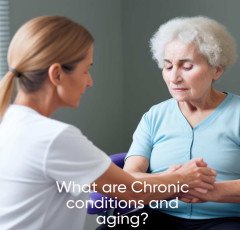
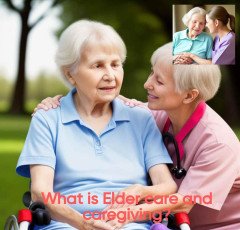

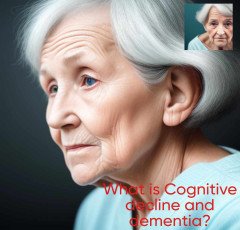
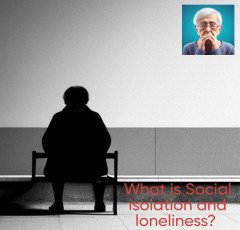
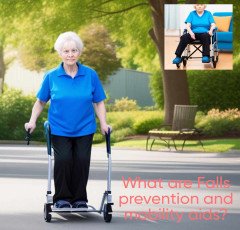
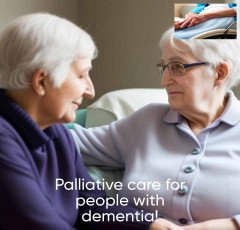
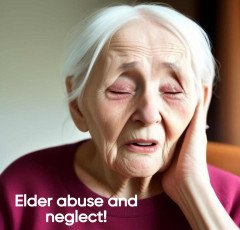
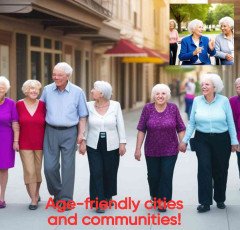

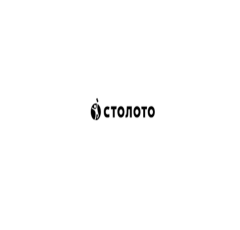
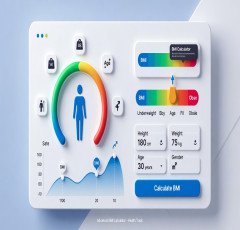



 Acer Laptop
Acer Laptop  RPM 3.0
RPM 3.0  ASUS Laptop
ASUS Laptop  Hello Theme
Hello Theme  1150+Trendy kids coloring pages Bundle
1150+Trendy kids coloring pages Bundle  Creative Brief For Video Shoot
Creative Brief For Video Shoot  SEO Checklist
SEO Checklist  Best Selling Books
Best Selling Books  Online Marketing
Online Marketing  NordLocker
NordLocker  Unreal Engine 5 For Beginners Learn The Basics Of Virtual Production
Unreal Engine 5 For Beginners Learn The Basics Of Virtual Production  Best Home Appliances
Best Home Appliances  Unlimited access to classes on illustration, photography, design, film, music
Unlimited access to classes on illustration, photography, design, film, music  TitTok Revolution
TitTok Revolution  One World Collection
One World Collection  ASPINAL LONDON
ASPINAL LONDON  Online Technology Classes
Online Technology Classes  Artificial Intelligence
Artificial Intelligence  All Wireless Products
All Wireless Products  NordPass
NordPass  Women Fashion
Women Fashion  BEST SELLER TOP10
BEST SELLER TOP10  Only For The United States
Only For The United States  Amazon Best Selling Products
Amazon Best Selling Products  Smart Doorbell
Smart Doorbell  The Secret Email System
The Secret Email System  Best Robotic Vacuum Cleaners
Best Robotic Vacuum Cleaners  SOFAS
SOFAS  Men Clothing
Men Clothing  Graphics & Design
Graphics & Design  The Click Engine
The Click Engine  Sennheiser
Sennheiser  NordVPN
NordVPN  Top Rated From Amazon
Top Rated From Amazon  ELECTRONIC ACCESSORIES
ELECTRONIC ACCESSORIES  Favorite Company (Cuelinks)
Favorite Company (Cuelinks)  Best Sellers On Amazon
Best Sellers On Amazon  Hot Bags For Pain Relief
Hot Bags For Pain Relief 
















